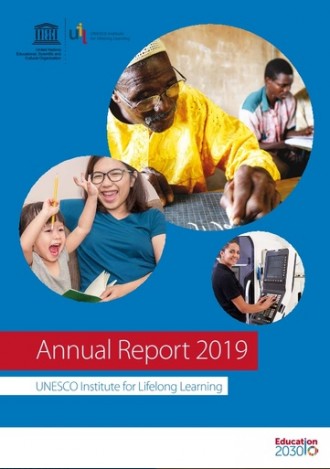The UNESCO Institute for Lifelong Learning’s annual...

Providing free access to relevant resources is crucial for prisoners’ personal development, well-being and, ultimately, rehabilitation. By offering a variety of reading and learning materials, from easy to expert levels and in various languages, prison libraries provide lifelong learning opportunities, thereby improving inmates’ chances of successful reintegration on release. Reductions in recidivism have substantial societal and cost-saving benefits.
The policy brief How prison libraries support rehabilitation efforts highlights that prison libraries should not operate...
A large and growing number of people worldwide are excluded from participating in the economy and society, which poses a problem not only in achieving Sustainable Development Goal (SDG) 4 on education, but also in making progress on the other goals of the 2030 Agenda, spanning issues from climate change to poverty reduction.
The fourth Global Report on Adult Learning and Education (GRALE 4) shows that raising participation in adult learning and education (...
The role of global citizenship education (GCED) is very relevant to the realization of the 2030 Agenda for Sustainable Development. The three areas of sustainability, namely economic growth, social inclusion and environmental protection, rely on the contribution of informed citizens. Moreover, GCED requires a lifelong learning perspective, beginning in early childhood and continuing through all levels of education into adulthood, including both formal and informal approaches.
While GCED is already being promoted in schools and formal education, and progress has been made, further...
In almost one-third of countries, fewer than 5 per cent of adults aged 15 and above participate in education and learning programmes, according to UNESCO’s fourth Global Report on Adult Learning and Education ( GRALE 4 ). Adults with disabilities, older adults, refugees and migrants, minority groups and other disadvantaged segments of society are particularly under-represented in adult education programmes and find themselves deprived of crucial access to lifelong learning opportunities.
GRALE 4 monitors the extent to which UNESCO Member States put...
The publication Global inventory of regional and national qualifications frameworks 2019 – Volume II: National and regional cases gathers information on progress in establishing national qualifications frameworks (NQFs), as well as the challenges and success factors in implementation. It shows how countries around the globe are reforming their education systems by improving the quality and relevance of their qualifications. Volume II comprises more than 100 country chapters, from all the continents, plus seven world regions chapters. The country chapters describe the characteristics and...
The human right to education is particularly important in the prison environment, as prisoners often come from disadvantaged socio-economic and educational backgrounds.
This publication explores the extent to which prison authorities fulfil their societal mandate to rehabilitate and reintegrate inmates by enabling them to use prison libraries to pursue their right to education.
Reading and using a prison library can open up a world beyond prison bars, allowing prisoners to forget for a time the harsh reality of prison life and empower them to choose their own reading...
This important new publication looks back to recent major milestones in international policy development in adult learning and education and ahead to the Seventh International Conference on Adult Education – CONFINTEA VII – in 2022.
CONFINTEA VI, held in Brazil in 2009, closed with the adoption of the Belém Framework for Action (BFA), which recorded the commitments of Member States and presented a strategic guide for the global development of adult learning and education.
The third Global Report on Adult Learning and Education ( GRALE 3 ), published in...
A national qualifications framework (NQF) is an instrument used to classify a country’s qualifications at different levels. Each level is defined by a set of learning outcomes expected at that level. NQFs can be useful tools in education and training reforms and are vital reference points for lifelong learning and comparing qualifications across borders.
The Global Inventory of Regional and National Qualifications frameworks 2019, Volume I: Thematic chapters comprises six thematic chapters, charting developments in national and regional qualifications frameworks worldwide...









